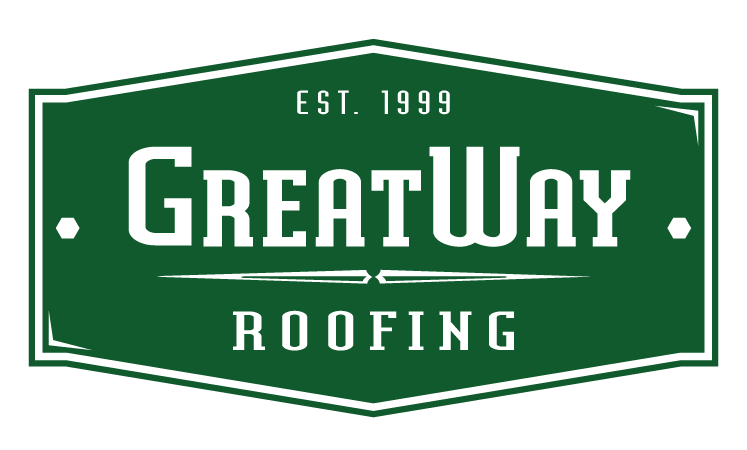Your roof is one of the most critical components of your home, shielding you from the elements and maintaining the structural integrity of your property. When it sustains damage or starts to deteriorate, timely repairs are essential to prevent costly issues. However, not all roofing contractors offer the same level of expertise, reliability, or professionalism. Hiring the wrong contractor can result in subpar work, unexpected expenses, and even further damage to your home.
With so many options available, how do you make the right choice? This checklist provides a step-by-step guide to selecting a trustworthy and skilled roof repair contractor. By following these guidelines, you’ll gain confidence in your decision, avoid common pitfalls, and protect your home with high-quality repairs that stand the test of time.
1. Verify Company Licensing and Business Insurance
One of the homeowners’ biggest mistakes when hiring a roofing contractor is failing to check for proper licensing and insurance. Without these credentials, you could be putting your home and wallet at serious risk. A contractor who lacks the right paperwork may cut corners, deliver subpar work, or even leave you liable for accidents on your property.
Licensing: Proof of Professionalism and Compliance
A valid license is more than just a piece of paper—it’s a sign that a contractor has met industry standards, understands local building codes, and is legally authorized to perform roofing work in your area. Here’s why it matters:
- Ensures Knowledge and Expertise – Licensed contractors have undergone the necessary training and certifications to handle roof repairs safely and correctly.
- Guarantees Compliance with Regulations – A licensed roofing contractor follows state and local building codes, ensuring your roof meets legal safety requirements.
- Protects You from Unqualified Work – Hiring an unlicensed contractor may result in faulty repairs that lead to leaks, structural damage, or costly rework.
Before hiring, ask for the contractor’s license number and verify it with your state’s licensing board. Consider it a major red flag if they hesitate or claim it’s unnecessary.
Insurance: Your Safety Net Against Unexpected Costs
Even the most experienced contractors can encounter accidents or property damage during a project. That’s why insurance is non-negotiable. A reputable roofing contractor will carry two critical types of insurance:
- General Liability Insurance – Covers any damage the contractor might cause to your home during the repair process.
- Workers’ Compensation Insurance – Protects you from being held financially responsible if a worker is injured on your property.
Always request proof of insurance and contact the provider to confirm that the policy is active. A contractor without insurance may try to hold you liable for damages or injuries, turning a simple repair into a financial nightmare.
2. Research Company Reputation and Customer Reviews
A roofing contractor’s reputation is one of the strongest indicators of their reliability and quality of work. In an industry where poor workmanship can lead to expensive repairs down the line, you need to know you’re hiring someone with a proven track record.
Check Online Reviews
Start by looking up the contractor on platforms like Google, Yelp, Angi, and the Better Business Bureau (BBB). Pay close attention to:
- Overall Ratings: A high average rating is a good sign, but don’t just rely on the stars—read the reviews for details.
- Common Complaints: If multiple customers mention the same issues, such as unfinished work, delays, or poor communication, consider it a red flag.
- Contractor Responses: How a company handles negative reviews speaks volumes. A professional contractor will address concerns with solutions, not excuses.
Be wary of companies with too few reviews or a sudden influx of overly positive, vague reviews, as these could be fake.
Ask for References—and Follow Up
Online reviews only tell part of the story. A reputable contractor should be able to provide at least three recent references from homeowners they’ve worked with. When you contact these references, ask:
- Was the job completed on time and within budget?
- Did the contractor communicate clearly and address any concerns?
- Has the roof held up well since the repair?
- Would you hire them again?
Drive by completed projects to see the contractor’s work firsthand. A skilled professional will have no problem showcasing their craftsmanship.
3. Assess Experience and Specialization
When it comes to roofing, experience matters—and so does specialization. While many contractors may have general expertise, a roofing specialist who has honed their skills in a specific area will offer the depth of knowledge and precision required for a successful repair job.
Why Experience is Crucial
Roofing is a complex trade that requires a keen understanding of materials, techniques, and the challenges each type of roof presents. Contractors who have been in business for several years are likely to have encountered a variety of roof types and repair situations, allowing them to diagnose issues and recommend the best solutions quickly.
An experienced roofing contractor will not only complete the work with skill and efficiency but also foresee potential problems that less experienced contractors might overlook. Whether it’s detecting hidden water damage, understanding the best materials for your climate, or identifying problems that could arise from previous repairs, seasoned contractors are equipped with the knowledge to prevent costly mistakes.
Questions to Ask
- How long have you been in the roofing industry? Contractors with extensive experience are more likely to deliver high-quality results.
- Do you specialize in any specific roofing materials or styles? A contractor specializing in your specific roof type is often more capable of addressing unique challenges.
- What types of roofs have you worked on? If your roof is unique, ask for examples of similar projects they’ve completed.
- Have you handled roofing repairs related to storm damage or insurance claims? If your repair is related to weather damage, experience with insurance claims and storm repairs can make the process smoother.
Choosing a contractor with the right experience and specialization ensures that your roofing project will be completed with precision and expertise, helping your roof stand the test of time.
4. Obtain Multiple Estimates and Compare Costs
When it comes to roof repairs, price shouldn’t be the only factor guiding your decision. While it’s tempting to go with the lowest bidder, choosing the right contractor involves more than just comparing numbers. Obtaining multiple estimates allows you to evaluate both cost and value, ensuring you receive the best possible service for your investment.
Why Multiple Estimates Are Essential
- Understand Market Pricing: Obtaining quotes from at least three contractors will give you a clearer picture of what a fair price for the job is.
- Gauge Quality of Work: Based on their expertise and experience, contractors may suggest different materials, methods, and approaches.
- Spot Potential Red Flags: A contractor who provides an unusually low estimate may be cutting corners on materials or labor, or they might charge hidden fees later on.
5. Review Important Contract Details Carefully
Before signing any agreement, thoroughly examine the contract to ensure it includes all relevant details.
Key Elements to Look for in a Contract
- Detailed Scope of Work: A reputable contractor will outline what repairs or services will be provided. This should include specifics on materials, labor, and any unique considerations for your roof type.
- Project Timeline: Your contractor should provide a clear start and completion date. If there are delays, they should communicate openly about the reasons and provide a revised schedule.
- Payment Terms and Schedule: Be cautious about large upfront payments. A fair payment schedule will likely involve an initial deposit followed by payments tied to specific project milestones. Avoid paying in full until the job is completed to your satisfaction.
- Cleanup Responsibilities: The contract should state that the contractor will remove all debris, old roofing materials, and any waste left behind, ensuring your property is returned to its original state.
- Warranty Information: Look for clear details on the warranty for both materials and workmanship. A trustworthy contractor will back their work and materials, giving you peace of mind that if any issues arise post-repair, they’ll be addressed without additional cost.
Never agree to a contract with vague terms. If a contractor refuses to put everything in writing, look elsewhere.
6. Evaluate Project Communication and Professionalism
Clear and consistent communication lays the foundation for a successful working relationship. An open, responsive, and easy-to-work-with contractor will help ensure that your roof repair goes smoothly and meets your expectations.
Signs of Good Communication
- Prompt responses to calls, emails, and texts.
- Clear, detailed answers to questions about pricing, materials, and timelines.
- Willingness to explain the repair process in simple terms.
- Transparent documentation of estimates, warranties, and contracts.
Clear and consistent communication lays the foundation for a successful working relationship. An open, responsive, and easy-to-work-with contractor will help ensure that your roof repair goes smoothly and meets your expectations.
7. Watch for Red Flags and Avoid Scams
Unfortunately, the roofing industry is not immune to scams. Unscrupulous contractors often prey on homeowners who are unaware of the warning signs, leading to subpar work, inflated costs, or even total loss of payment. Recognizing early potential red flags can save you from being taken advantage of and ensure a reputable professional completes your project.
Red Flags to Watch For
- Contractors who show up uninvited, offering to inspect your roof for free.
- High-pressure sales tactics, such as insisting that you sign a contract immediately.
- Requests for full payment upfront before any work begins.
- Lack of a permanent business address, online presence, or verifiable license.
By staying vigilant and trusting your instincts, you can avoid these common scams and ensure that the contractor you hire is trustworthy, qualified, and committed to delivering quality results. Always take the extra time to research and confirm the legitimacy of any contractor you’re considering—your roof and your peace of mind are worth it.
Conclusion
Choosing the right roof repair contractor is one of the most important decisions you can make for your home’s longevity and safety. A well-repaired roof protects your property from the elements and prevents costly issues down the road. By following this checklist, you can ensure you’re hiring a licensed, insured, experienced, and reputable contractor.
Research and compare contractors, ask the right questions, and never settle for vague agreements or rushed decisions. A reliable roofing professional will be transparent about their credentials, provide a detailed contract, and stand by their work with warranties. Investing in a trustworthy contractor now will save you from headaches, unexpected costs, and subpar workmanship in the future.

